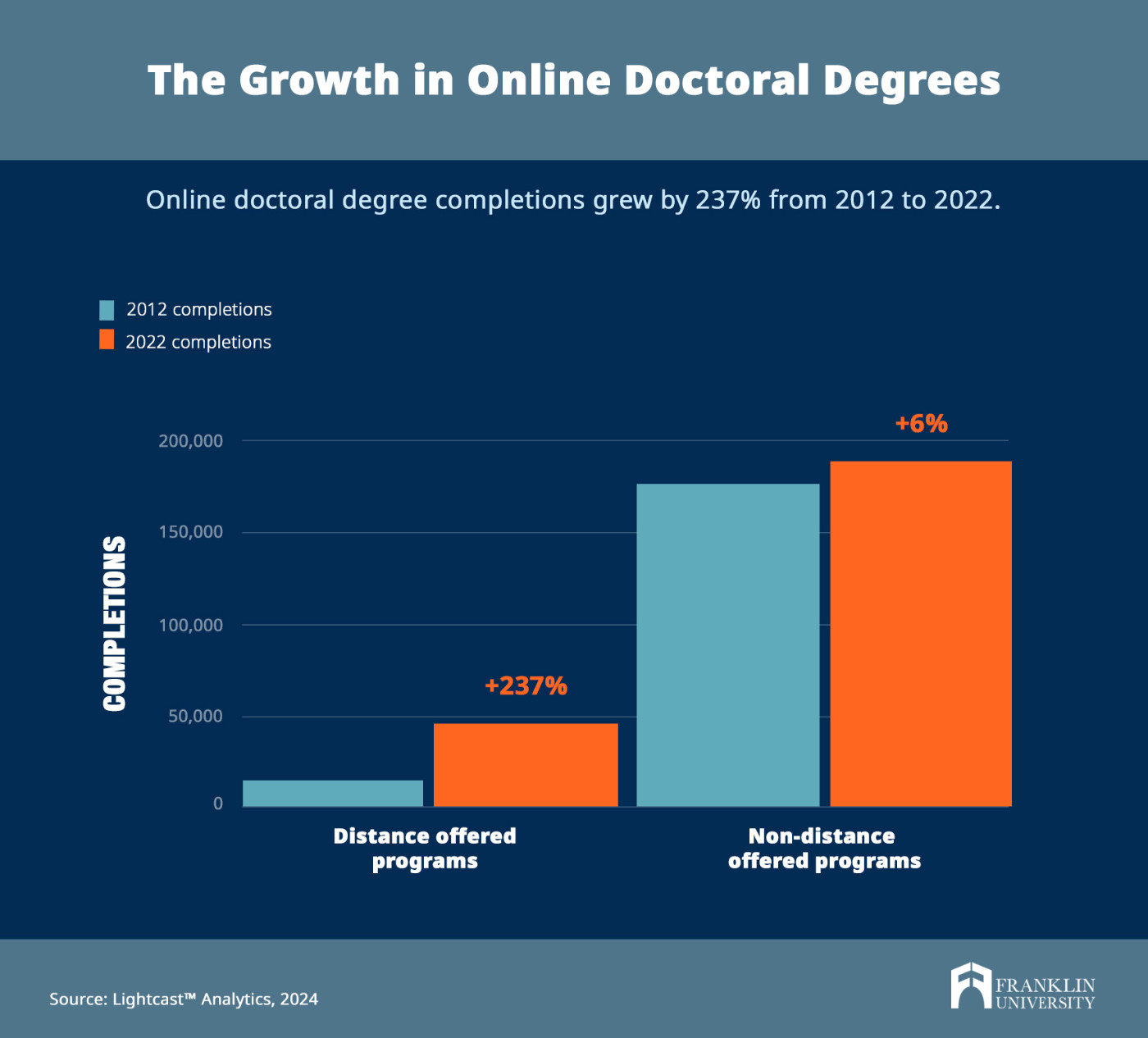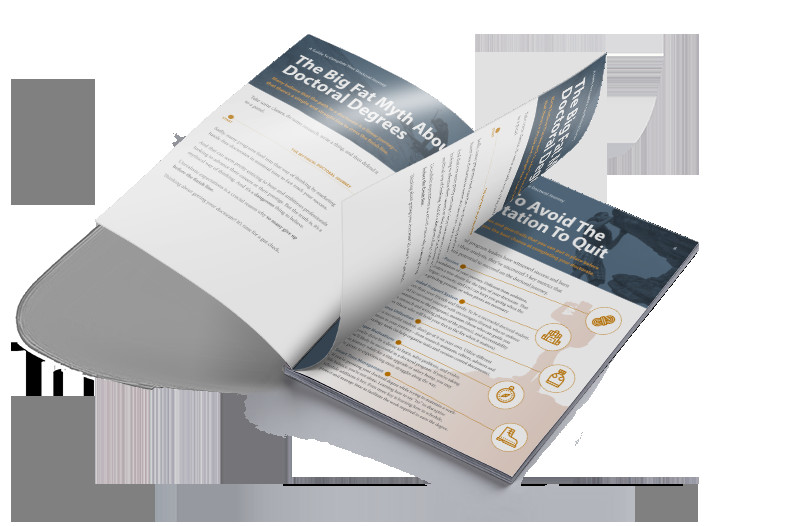Considering the pinnacle of academic achievement, a doctorate degree, but wondering about the time commitment involved? If you’re contemplating furthering your education beyond a master’s degree, understanding the duration of a doctoral program is crucial. This article will delve into the factors influencing the length of time it takes to earn a doctorate, providing a comprehensive guide to help you plan your academic journey.
 Smiling student in library studying for doctorate degree
Smiling student in library studying for doctorate degree
Factors Influencing Doctorate Program Length
The journey to a doctorate is a significant undertaking, and the timeline isn’t uniform. Several key factors determine how long it will take you to earn this advanced degree. Understanding these elements is essential for prospective doctoral candidates.
Type of Doctorate: Ph.D. vs. Professional Doctorates
One of the primary differentiators in program length is the type of doctorate you pursue. Generally, there are two main categories: research-oriented degrees like the Ph.D. (Doctor of Philosophy) and professional or applied doctorates.
Ph.D. Degrees: Ph.D. programs are heavily research-focused, emphasizing original contributions to academic knowledge. They typically involve extensive independent research culminating in a dissertation. Due to their research intensity, Ph.D. programs often take longer to complete.
Professional Doctorates: Applied doctorates, such as the Doctor of Business Administration (DBA) or Doctor of Education (Ed.D.), focus on applying existing knowledge to solve real-world problems in specific professions. While research is still involved, it’s often more practically oriented. Professional doctorates can sometimes be completed in a shorter timeframe compared to Ph.D.s.
Program Structure and Credit Hours
Doctoral programs are structured around semester credit hours, similar to undergraduate and master’s degrees. The number of credit hours required for a doctorate can vary significantly, ranging from 60 to 120 semester hours, which translates to roughly 20 to 40 college courses.
Credit Hour Requirements: Ph.D. programs often require closer to 120 credit hours due to their extensive research component. Professional doctorates may require fewer, sometimes around 60 credit hours, depending on the field and program design. For instance, programs like the DBA and DHA at Franklin University are structured to require around 58 credit hours, showcasing a more streamlined approach.
Study Pace: Full-time vs. Part-time
The pace at which you study also significantly impacts the time to completion. Most doctoral programs are designed for full-time students, but many institutions also offer part-time options to accommodate working professionals.
Full-time Study: Enrolling full-time allows you to dedicate your primary focus to your studies, progressing through coursework and research more rapidly. Full-time students typically complete their doctorates faster.
Part-time Study: Part-time enrollment offers flexibility, but it inherently extends the overall program duration. Balancing work, personal commitments, and doctoral studies requires careful time management and can add years to your doctoral journey.
Institution and Program Design
The institution offering the program and the program’s specific design play a crucial role in determining the time to completion. Some universities have structured their doctoral programs to be more efficient, incorporating elements like embedded dissertation support and streamlined coursework.
Program Efficiency: Innovative institutions like Franklin University have intentionally designed doctoral programs to help students progress efficiently. Features such as embedded dissertation support, where dissertation work is integrated into the coursework, and a supportive learning community, can contribute to faster completion times.
Average Time to Complete a Doctorate
While the exact duration varies, understanding average completion times provides a general expectation.
Typical Duration for a Ph.D.
Ph.D. programs, known for their rigorous research demands, generally take longer to complete. On average, a Ph.D. can take up to eight years to earn. This timeframe reflects the in-depth research, dissertation writing, and defense processes inherent in these programs.
Typical Duration for Professional Doctorates
Professional doctorates often have a shorter average completion time compared to Ph.D.s. While still demanding, they are typically structured to be completed in four to six years. This range depends on the specific program, subject area, and the institution.
How Online Programs Can Affect Time
The rise of online doctoral programs has introduced new dimensions to program duration. Online formats offer flexibility, which can be beneficial for working professionals, but the impact on completion time can vary.
Flexibility vs. Pace: Online programs can offer asynchronous learning, allowing students to study at their own pace. While this flexibility is advantageous, it requires strong self-discipline to maintain consistent progress and avoid extending the study duration unnecessarily. However, well-designed online programs can also incorporate structured timelines and support systems to help students stay on track and potentially expedite their studies.
 Growth of Online Doctoral Degrees
Growth of Online Doctoral Degrees
Streamlining Your Doctoral Journey
Earning a doctorate is a marathon, not a sprint, but there are strategies to potentially streamline your journey and manage your time effectively.
Choosing the Right Program Format
Carefully consider the program format that aligns with your learning style, schedule, and commitments.
On-campus vs. Online: Evaluate whether an on-campus, online, or hybrid program best suits your needs. Online programs can offer flexibility, while on-campus programs provide direct interaction and structured environments.
Program Structure: Investigate the program structure. Programs with embedded dissertation components and strong faculty support can contribute to more efficient progress.
Time Management and Dedication
Effective time management is paramount for doctoral success, regardless of program length.
Prioritization: Doctoral studies require significant time and focus. Prioritize your studies, schedule dedicated study blocks, and minimize distractions.
Discipline: Maintain discipline and consistency in your studies. Adhere to your study schedule and stay committed to your research and coursework.
Dissertation Planning and Support
The dissertation phase is often the most time-consuming part of a doctorate program.
Early Planning: Start thinking about your dissertation topic early in your program. Early planning allows for more time for research, proposal development, and writing.
Utilize Resources: Leverage the dissertation support resources offered by your institution, such as faculty mentors, writing centers, and peer support groups. Franklin University, for example, emphasizes faculty mentoring and peer-to-peer support throughout the dissertation process.
Is a Doctorate Degree Worth the Time Investment?
Despite the significant time commitment, a doctorate degree offers substantial returns, both professionally and personally.
Career Benefits and Opportunities
A doctorate can significantly enhance your career prospects and earning potential.
Career Advancement: Doctorates often open doors to leadership positions, specialized roles, and higher salaries in various industries.
Higher Education: For those aspiring to teach at the university level, a doctorate is often a prerequisite.
Industry Leadership: In many industries, a doctorate provides credibility and positions you as a leader and expert in your field. As Dr. Wendell Seaborne from Franklin University notes, a doctorate can facilitate a career shift into higher education and allow you to impact thousands of lives.
Personal Growth and Fulfillment
Beyond career benefits, a doctorate represents a significant personal achievement.
Lifelong Goal: For many, earning a doctorate is a lifelong personal goal, representing mastery in a chosen field.
Personal Development: The doctoral journey fosters critical thinking, research skills, and resilience, contributing to significant personal growth.
Increased Earning Potential: While the time investment is substantial, the increased earning potential associated with a doctorate can provide a strong return on investment over your career.
Earning a doctorate degree is a considerable commitment of time and effort. However, by understanding the factors that influence program length, planning strategically, and choosing the right program, you can navigate your doctoral journey effectively. The rewards of a doctorate, in terms of career advancement, personal fulfillment, and expertise, make the time investment worthwhile for many ambitious individuals.
Free Guide:
 Blueprint to Complete Doctoral Journey Download Now
Blueprint to Complete Doctoral Journey Download Now
How to Complete Your Doctoral Journey
Discover common pitfalls and the 5 key metrics that will help you finish your doctorate degree.

